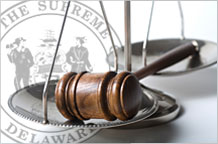Law firms are beginning to adopt artificial intelligence. This could be great news for clients, but young lawyers are most at risk of losing jobs to AI.
Cravath Swaine & Moore has reportedly signed up with Luminance to use its AI technology for due diligence.
Cravath is generally considered one of the most prestigious law firms in the country. Their adoption of AI will be a big deal since other firms will feel obligated to follow. For those who don’t know, BigLaw firms tend to be trailblazers . . . when another BigLaw firm paves the trail.
Document review tends to be a big part of how junior associates spend their time and bill their hours. This applies in due diligence for transactions and discovery for litigation. For law firms, it serves a valuable purpose of generating fees while these associates learn how to read documents in the context of actual legal work and learn how to do their jobs. For clients, this feels like paying to train someone else’s employees at premium rates for non-premium work.
The practice of law is changing. It has the key aspects of any business ripe for disruption: rote work that can be replaced by automation.
When people think of automation, they think of factories and, increasingly, food service. However, poring over piles of similar documents is subject to machine learning and AI like assembling widgets.
What is Luminance? It
… is the market-leading artificial intelligence platform for the legal industry. Trained by legal experts, the revolutionary technology is founded on breakthroughs in machine learning at the University of Cambridge.
Luminance understands language the way humans do, in volumes and at speeds that humans will never achieve. It provides an immediate and global overview of any company, picking out warning signs without needing any instruction.
Whether used for due diligence, compliance, insurance or contract management, Luminance adds value to a legal team, freeing lawyers to focus on what matters.
Law students with BigLaw ambitions should take note. Unless BigLaw finds another way to finance their training, entry-level opportunities at BigLaw may be going away.


